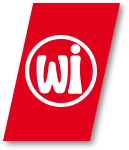At Wainwright Instruments we strive to continuously improve and optimize all areas including:
- Occupational Safety and Health
- Environmental Care
- Ethics and Avoidance of Corruption
- Manufacturing Quality
- Customer Service
- Efficiency and Profitability
- Export Procedures and Export Control
Helping us reach and maintain these standards, we are certified according to:
- ISO 9001 – Quality Management (download certificate here)
- ISO 14001 – Environmental Management (download certificate here)
- ISO 45001 – Occupational Health and Safety Management (download certificate here)
RoHS
The RoHS 2 Directive 2011/65/EU has been extended by the Directive 2015/863/EU, adding four further restricted substances and is effective since 22.07.2019. Wainwright Instruments GmbH hereby confirms that all our products comply with this directive, with the exception of brass housing components, which fall under the exemption of Directive 2018/741/EU (Annex III, 6c, Category 11). According to this directive, we may continue to use brass with a mass content of up to 4% lead. Our products do not require RoHS labelling.
(download our RoHS declaration here)
REACH
Regulation (EC) 1907/2006 of the European Parliament and of the Council concerning the Registration, Evaluation, Authorization and Restriction of Chemicals (REACH) regulates the manufacturing, placing on the market and use of chemicals and mixtures thereof.
In terms of the REACH regulation, our products are articles. In accordance with Article 33 of the REACH Regulation, suppliers of articles must inform their customers if the supplied article contains a substance on the REACH Candidate List (SVHC list) with contents greater than 0.1 mass percent. On 27.06.2018 lead (CAS: 7439-92-1 / EINECS: 231-100-4) was added to the candidate list SVHC. This inclusion triggers an information obligation in the supply chain.
We hereby inform you that our products are manufactured from copper alloys containing lead of more than 0.1 % by weight to improve their machinability and corrosion resistance. The classification according to the German Hazardous Substances Act, the rules for the safe handling of lead metal and the range of applications of our products remain unchanged.
Products made of copper and copper alloys do not fall within the scope of Regulation (EC) No. 1272/2008 of the European Parliament and of the Council on classification, labelling and packaging of substances and mixtures (CLP Regulation) and are therefore not subject to classification and labelling obligations.
(download our REACH declaration here)
Conflict Minerals Policy Statement
The U.S. Securities and Exchange Commission (SEC) rule (the “Rule”) under Section 1502 of the Dodd-Frank Wall Street Reform and Consumer Protection Act (the “Dodd-Frank Act”) requires publicly traded companies subject to the Securities Exchange Act of 1934 reporting requirements, to report annually on the use and source of ‘conflict minerals’ in their products. Conflict minerals are defined in the Rule as Gold as well as Tin, Tantalum and Tungsten (and their derivatives Cassiterite, Columbite-Tantalite and Wolframite), which originate in the Democratic Republic of Congo, or an adjoining country specified in the Rule (collectively the “Covered Countries”). The Rule was implemented to increase supply chain transparency with the aim of ending ongoing violent conflict in the Covered Countries that the U.S. Congress determined is being partially financed by revenues generated from the mining and transport of conflict minerals.
Our Commitment
Wainwright Instruments is committed to conducting its business worldwide with respect for human rights and in compliance with all applicable laws. As part of this commitment, Wainwright Instruments acts responsibly in its sourcing and considers mining activities that fuel conflicts as unacceptable. Wainwright Instruments will work closely with its suppliers and will seek, over time, to identify, reduce and ultimately eliminate the use in its products of conflict minerals that directly or indirectly finance or benefit armed groups.
Our Expectations
Wainwright Instruments expects its suppliers to comply with this Conflict Minerals Policy and the reporting requirements set forth in the SEC Conflict Minerals Reporting Rule. Specifically, Wainwright Instruments expects its suppliers to:
- use raw materials, for which mining, transport, trading, manufacturing or export does notcontribute to the financing of conflicts and human rights abuse,
- establish transparency and provide information about the origin of conflict minerals tin, tungsten, tantalum and gold included in their products, considering all upstream suppliers,
- work with their own upstream suppliers to establish transparency and provide information about the origin for any conflict minerals,
- complete and submit to Wainwright Instruments an annual Conflict Minerals Report (CMRT),
- cooperate with Wainwright Instruments for any due diligence to ensure origin/sourcing of conflict minerals,
- assist Wainwright Instruments to identify opportunities to source DRC conflict mineral-free materials.
(download our Conflict Minerals Policy Statement here)
 Wainwright Instruments
Wainwright Instruments